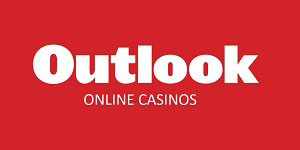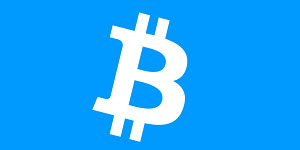Opinionated: Filip-in Hell – Why the Miucin Debacle Makes IGN Necessary

Filip Miucin had an inauspicious start at IGN ten months ago. Plucked from relative obscurity, he was thrust into arguably the world’s foremost Nintendo podcast, Nintendo Voice Chat. Its hugely popular former presenter, Jose Otero, just finished his tenure by nailing a job at Nintendo itself. Miucin was visibly and verbally nervous for several weeks – but his joy and infectious enthusiasm won out, and he established himself as a capable and engaging chairman. An energetic everyman, he was precisely the kind of competent fanboy you want in the hotseat.
The fact that his career at IGN (and possibly in games journalism period) should come to an end in this way is particularly shocking, given his apparently genuine love for Nintendo, and given the scale of the opportunity he was offered by IGN. To summarise: For his review of Dead Cells, Miucin stole virtually wholesale a review by a lesser-known YouTuber going by the moniker Boomstick Gaming. (The kind of lesser-known YouTuber, I might add, that video editor Miucin was himself before entering the limelight of IGN.)
It’s bizarre that Miucin would take such a colossal risk. We may never know the motivation. We do know, through much excitement on his own Twitter feed, that this was the first video review he’d edited for the site, which would bring its own pressure. But it also brings scrutiny. Throw into that pressure pot a near-perfect score for one of the most hyped games of the year and it’s a recipe for serious traffic. All it would ever have taken is for one of Boomstick’s X-thousand subscribers to watch two reviews on their feed. In the end it was Boomstick himself who caught it, delivering a droll comparison video of devastating clarity.
Let’s be clear, the problem here is not IGN. If I were to plagiarise someone, my editor would have no realistic way of knowing. Even with the resources of IGN, it would be virtually impossible. Fingers may be pointed at IGN’s recruitment process – but then, if this is Miucin’s first offence, what difference would it have made?
The consensus of anger against Miucin is understandably high. Plagiarism pains us because it’s a human betrayal that goes beyond dishonesty. It’s freeloading: profiting from the work of others. As social beings this touches a primal nerve. It can also, without a proper institutional response, reinforce our natural distrust for vast, multinational media organisations like IGN.
On the contrary, however, I would argue that this incident reinforces the need for such organisations, which are naturally held to account to higher standards. What if a smaller channel had stolen Boomstick’s video? Would the infamy be trending on r/games? Hell, no. It would have been another tiny, regrettable story; another symptom of the free-for-all nature of YouTube, a platform which ostensibly gives voice to the little man but in reality favours the sprawling populist. This is IGN, and now it becomes an issue that brings the integrity of major gaming publications – and games journalism in general – into the spotlight.
The fact that IGN let the video slip through isn’t the problem. No net is airtight. What would have been a problem is if they didn’t act with speed and ruthlessness. Their swift action – to terminate Miucin’s contract and deliver written and video apologies – has been welcomed because it’s expected of a company of that size. Like any multinational, their brand is built on trust and reputation.
IGN’s popularity ensures their revenue; revenue ensures that they can hire paid professionals; and professionalism demands standards which go beyond the wild west of YouTube. Boomstick himself is no doubt an honest creator. But anyone could start a channel tomorrow called, say, Spoontip Gaming and steal his stuff for hits. They may get caught; get a ‘Cease and Desist’; move on. Next week they’re called Broomdick Gaming and they’re at it again.
Because there is no code of conduct ‘out there’, beyond those protecting against blatant theft. That’s the thing about this sort of plagiarism: it is decidedly unblatant. To take another’s work and rephrase and remix takes one too smart and snide for it to be anything but greedy opportunism. Like a robot learning the language of humans, it’s the jealous act of the uncreative-but-clever. And that makes it a nightmare to detect.
The means and modes of communication have expanded massively in the online age, but editorial standards have remained static, even regressed. The only standards are those of individual decency. Of trust. This is what the democratisation of journalism via platforms like YouTube has done: opened up vastly more content with vastly less in the way of enforceable regulation. The platform-holders like it this way because their business models are built on sheer quantity. Meanwhile, honest YouTubers like Boomstick Gaming have laid bare both the benefits and, unfortunately, the drawbacks.
By responding as they did – correctly – the long-term outcome is that sprawling organisations like IGN make the statement that there is no place in their ranks for plagiarists and cheaters. We might resent the pervasiveness of IGN – its aggressive advertising; its often grating pursuit of the pop culture zeitgeist; its gobbling of companies like Humble – but the trade-off is that when something like this occurs, it is very publicly stamped on. Absolute integrity is the price they must pay for prevalence, fortune and influence. And that’s a fair trade.












































This is a very sensible, measured and interesting take on the whole affair. The stuff you said about the ‘primal’ nature of plagiarism really helped me to nail down and make sense of my own feelings about the nature of plagiarism, and it’s good to see someone take a rational approach regarding IGN and editorial standards rather than insinuating that Miucin’s actions are part of a larger corruption at IGN, or in games journalism in general (as is the tendency in this post-GamerGate era).
With regards to why Miucin did what he did, I think it was probably a combination of the pressures of the job in general, and the fact that he really wasn’t very good at formulating or expressing critical thought. I’d noticed for months that on NVC he almost never said anything of any substance about a game, instead just coasting by on sheer enthusiasm and hype. If IGN are guilty of anything here, it’s in hiring him in the first place, as he was clearly out of his depth.
Anyway, thanks for the article. It was a good read and I’m sure I’ll be back for more.
This is a great article. I’m going to use it somewhere else under my own name if you don’t mind.
LOL.